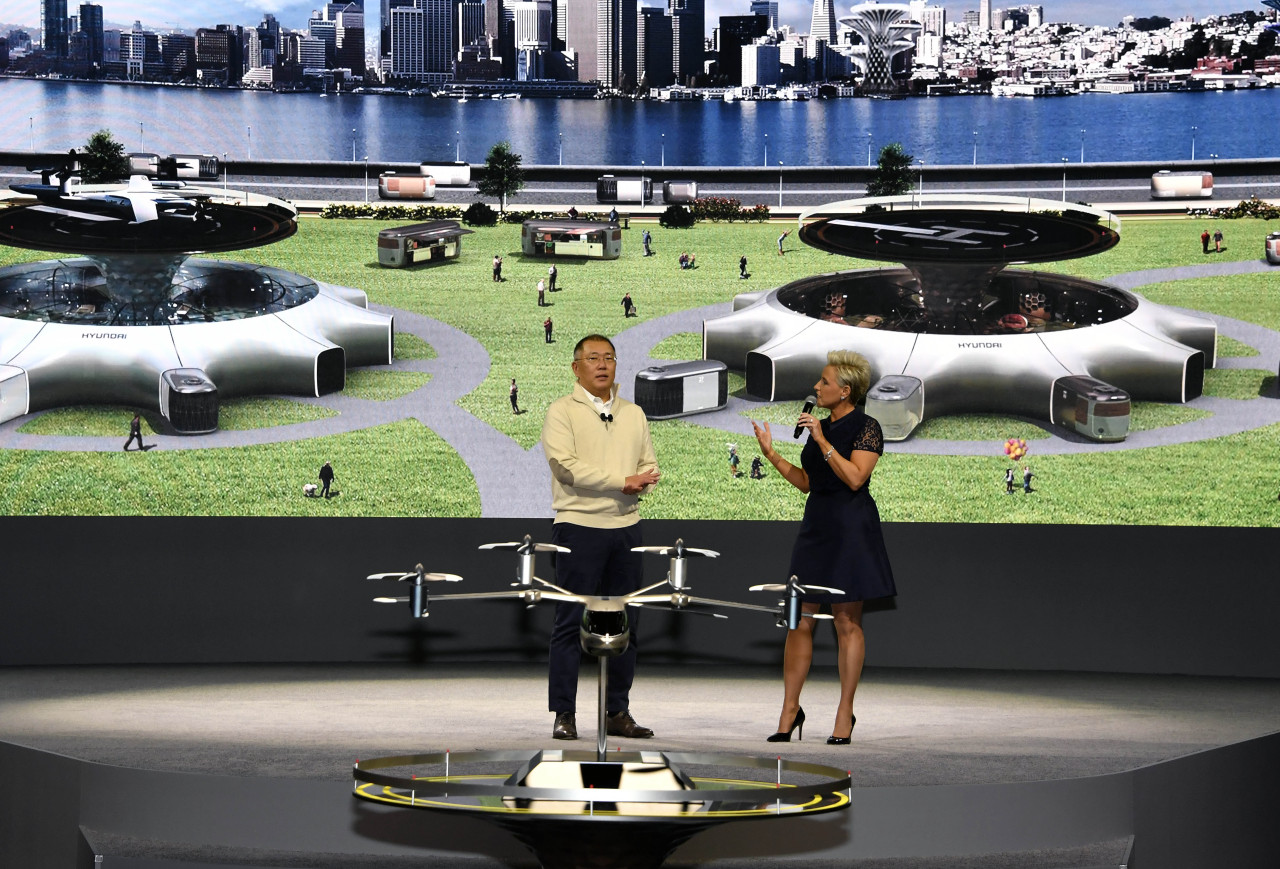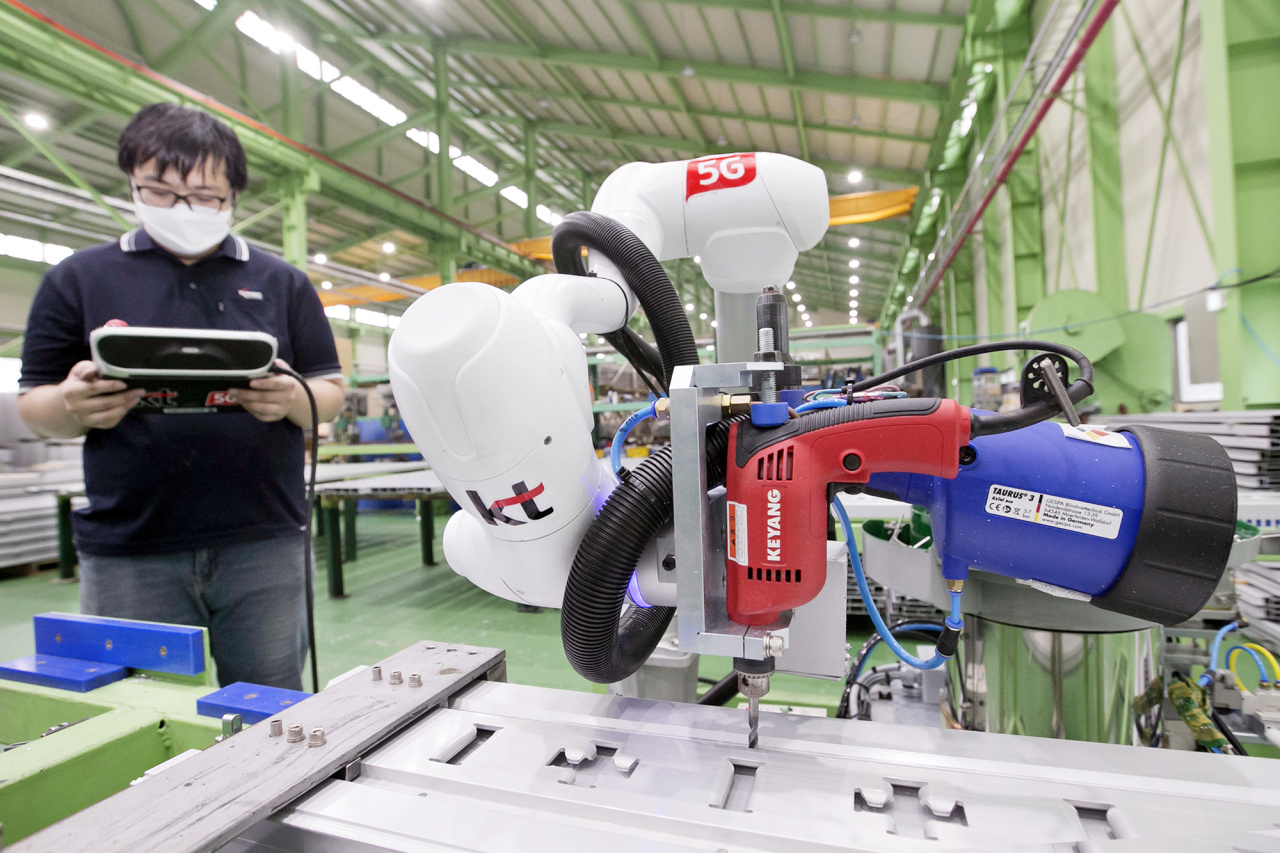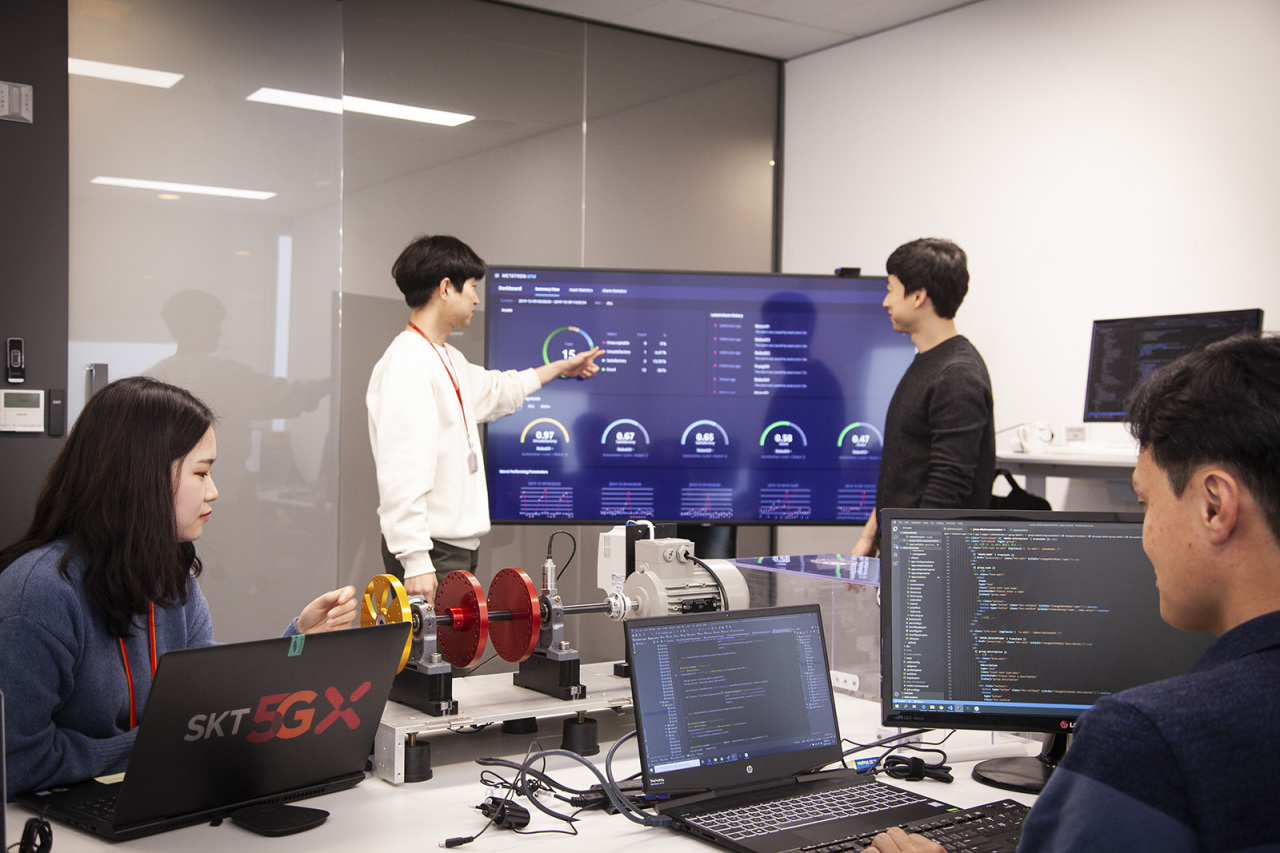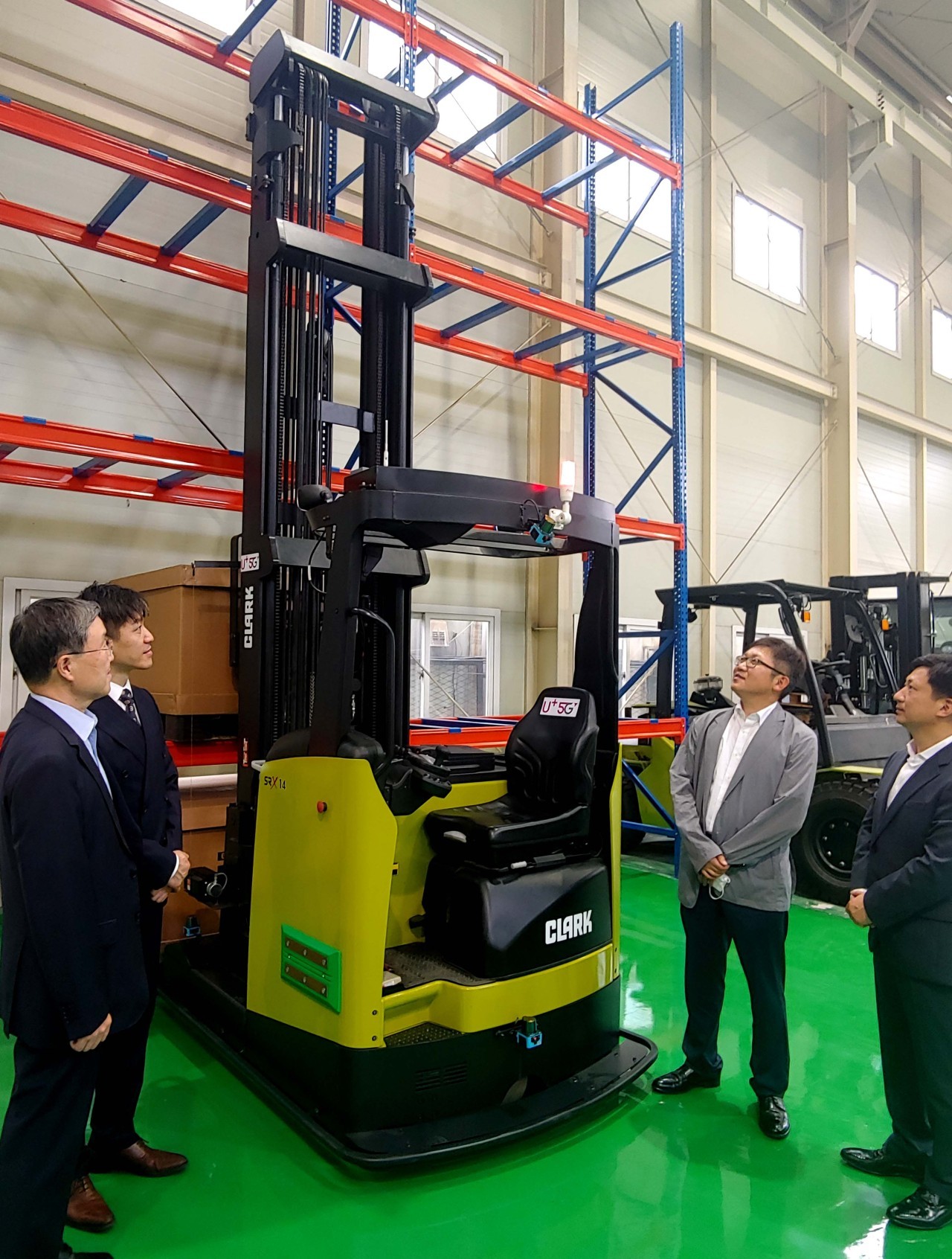[67th Anniversary Special] Blurring lines in Korea’s industries: manufacturing merges with AI
Manufacturing giants become AI-driven enterprises as IT firms facilitate the changes
By Korea HeraldPublished : Aug. 16, 2020 - 16:01

It was an inevitable future only to be hammered on by the COVID-19 pandemic.
South Korea’s key manufacturing giants that have pulled up the country’s economy since the rubbles of the Korean War (1950-53) are fast transforming their DNA by merging with world-class technologies offered by their information technology peers.
These companies once with heavy production processes and conventional services are stepping beyond their boundaries, revolutionizing to incorporate artificial intelligence, big data and robotic technologies.
Not only with their services and products, but the way they are making them are also becoming smarter, to turn the challenges into opportunities in the new normal of spending and trade upon the post-COVID-19 era.
Breaking the boundary
One prime example of a manufacturing giant making its boundary-less transformation is Hyundai Motor Group.
The nation’s largest automaker is aiming to transform from a conventional carmaker into a company that provides comprehensive mobility solutions.
According to Hyundai Motor’s “2025 Strategy” announced in December last year, it is planning to organize its business structure into two major pillars: intelligent mobility products and services. Through the plan, it aims to secure profitability of internal combustion engines and expand into a variety of mobility products, including personal air vehicles, robotics and last-mile mobility -- such as personal electric scooter.
“In the future, we believe that cars will be 50 percent (of the firm’s total products), 30 percent of PAVs and 20 percent of robotics, and we will transform ourselves into a company that mainly provides services,” Hyundai Motor Group Executive Vice Chairman Chung Euisun said as he announced the plan
As for vehicles, the automaker aims to develop a fully autonomous platform in 2022 and push for mass-production in 2024. By 2025, it also seeks to develop a personal assistant for vehicles that can give instructions by voice and to build connected car service, which connects inside and outside of the vehicle via wireless internet.
Aside from products, Hyundai Motor is also seeking to develop an intelligent manufacturing platform to make vehicles in a smarter way.
In March, the company said it would establish a mobility global innovation center in Singapore. The center will develop an intelligent manufacturing platform that combines artificial intelligence and internet of things. Workers are only put into minimum areas where it is difficult to replace manpower, the automaker said.
Despite the pandemic struggles, the automaker’s vision has been received well by the market, with its stock price jumping 41 percent in the past seven trading days as of Wednesday.
Smarter building

Then there are those that are making leaps in making their heavy production processes lighter and smarter.
Steelmaker Posco has been applying its own smart factory platform into its steel production since 2018.
The platform called PosFrame combines the firm’s steel expertise, information technology, such as internet of things, big data and artificial intelligence.
The platform collects data generated in real time in the process of producing steel products, and apply big data into the production. First applied at steel mills in Pohang and Gwangyang, PosFrame has been expanded into Posco’s other construction and energy units.
The steel maker also plans to establish a logistics unit driven by AI and robot technologies.
The company recently announced it would launch logistics unit Posco GSP within this year. The unit plans to establish AI "ship allocation" system to minimize the amount of time that ships wait at ports.
Shipbuilders and construction companies are also adopting AI and big data technologies into their shipyard and construction sites.
Hyundai Heavy Industries Group is currently seeking to upgrade its smart factory and smart shipyard in partnership with mobile carrier KT. The two firms are ultimately working to combine HHI’s robot development and shipbuilding technologies and KT’s 5G network, big data, and AI.
As for Samsung Heavy Industries, it delivered the 150,000-ton shuttle tanker Eagle Petrolina to Singapore’s AET Tankers in May. It is the world’s first smart shuttle tanker officially certified by international accredited registrar DNV GL.
SHI said Eagle Petrolina is provided with information such as route of operation, engine power and ship inclination to provide optimal fuel economy, and can monitor operational information such as fuel consumption and carbon dioxide emissions in real time.
In the construction sector, GS Engineering & Construction announced plans in July to use a four-legged robot named Spot at its construction sites after successful trials.
It is the first time for the robot, which is developed by American engineering company Boston Dynamics, to be put to work on construction sites in Korea, which has also teamed up with construction software startup Cupix.
Expediting the changes

Technology companies are facilitating acceleration of the digital transformation sought by the manufacturing sector by offering solutions combining up-to-date telecommunications and computing technologies.
At the heart of the ongoing digital transformation lie today’s 5G network technologies that enable manufacturers to depend on computers, automated machines and even robots more than before.
Korea’s telecom industry had long eyed on utilizing 5G networks to meet the growing needs from the manufacturing industry.
The mobile carriers launched their 5G network services for manufacturers for use in operating their production lines in December 2018, four months earlier than 5G commercialization for the general public in April 2019.
In theory, smart factories require highly trusted telecom networks that ensure seamless transmission of massive data between production lines and control rooms in real time, with near-zero latency.
Compared to the fourth-generation Long Tem Evolution networks, 5G is more suitable for smart factories considering its technical standards. 5G can send greater amounts of data as much as 20 gigabits per second, which also means 5G is 20 times faster than 4G’s maximum speed of 1 Gbps.
It is also designed to minimize the latency and the error rate. Once data is sent, the goal is to cut the round trip time or RTT as short as 1 millisecond or 1/1,000 second. Also, when the data is sent, data blocks should be intact, with the block error rate or BLER less than 0.000000001 percent, meaning that those data blocks should be 0.999999999 percent reliable. Put together, this technology is called Ultra Reliable and Low Latency Communications or URLLC.
The 5G network can support connections of as many as 1 million devices per 1 square kilometer, which is another crucial factor for making factories smarter with automation of more devices, computers and electronic equipment.
Based on the 5G network deployed in late 2018, Korean mobile carriers have developed creative solutions that could support manufacturers’ efforts to turn their factories smart by applying various digital platforms.
On top of 5G, the telecom companies are mobilizing their capabilities in the AI, big data and cloud fronts to develop better customized solutions for different types of manufacturers.
For example, SK Telecom has developed cloud-based equipment performance management solution Metatron Grandview that allows real-time monitoring of equipment and mechanical faults at plants.
According to the mobile carrier, the solution can help factories to reduce maintenance cost by 15 percent and increase equipment life-cycle by around 20 percent.
SKT is currently recruiting partner companies willing to test the solution at their factories before officially commercializing it. The number of factories that will test the solution is expected to reach around 100 factories by the end of the year.
As for KT, it has its machine vision-powered solution 5G Smart Factory Vision.
The telecom firms are also tapping into self-driving, drone and robotics technologies to strengthen smart factory solutions.
KT is currently partnering with Hyundai Heavy Industries and Hyundai Engineering & Construction to develop 5G-based smart factory solutions by utilizing self-driving vehicles and drones.
The firm is increasing efforts to develop solutions using assistive robots as well. This year, for instance, KT introduced a warehouse automation service that uses self-driving carts.
The mobile carrier also has installed an automated robotic solution Cobot at a local auto parts manufacturer’s factory to help in handling loading, packaging and other repetitive work procedures.
LG U+ has also unveiled a solution that can control up to 50 self-driving forklift trucks simultaneously.

More to come with 6G
As Korea is already preparing for the sixth-generation telecom network era, the future of the manufacturing industry looks even smarter.
According to a recent white paper on 6G released by Samsung Electronics, the more advanced, next-generation 6G hyper-communication will enter commercial usage as early as 2028 and spread to wider manifestation in 2030. This era will bring forth connected machines in smart factories communicating via artificial intelligence.
In 2030, the industry estimates there will be as many as 500 billion connected devices -- 59 times larger number than the worldwide human population forecast at 8.5 billion.
Unlike humans, the machines will have boundless possibilities leveraging hyperconnectivity, Samsung envisions.
By the Business Desk staff (song@heraldcorp.com) (shinjh@heraldcorp.com) (kaylalim@heraldcorp.com) (ws@heraldcorp.com) (hyunsu@heraldcorp.com) (kbw@heraldcorp.com)
-
Articles by Korea Herald







![[Graphic News] More Koreans say they plan long-distance trips this year](http://res.heraldm.com/phpwas/restmb_idxmake.php?idx=644&simg=/content/image/2024/04/17/20240417050828_0.gif&u=)
![[KH Explains] Hyundai's full hybrid edge to pay off amid slow transition to pure EVs](http://res.heraldm.com/phpwas/restmb_idxmake.php?idx=644&simg=/content/image/2024/04/18/20240418050645_0.jpg&u=20240419100350)






![[From the Scene] Monks, Buddhists hail return of remains of Buddhas](http://res.heraldm.com/phpwas/restmb_idxmake.php?idx=652&simg=/content/image/2024/04/19/20240419050617_0.jpg&u=20240419175937)

![[KH Explains] Hyundai's full hybrid edge to pay off amid slow transition to pure EVs](http://res.heraldm.com/phpwas/restmb_idxmake.php?idx=652&simg=/content/image/2024/04/18/20240418050645_0.jpg&u=20240419100350)

![[Today’s K-pop] Illit drops debut single remix](http://res.heraldm.com/phpwas/restmb_idxmake.php?idx=642&simg=/content/image/2024/04/19/20240419050612_0.jpg&u=)